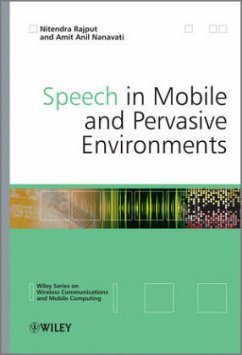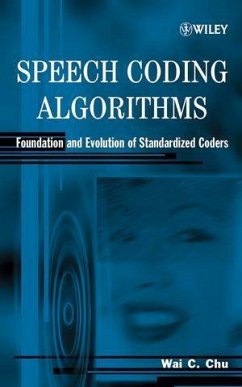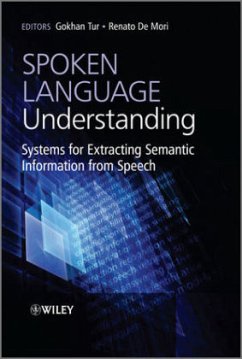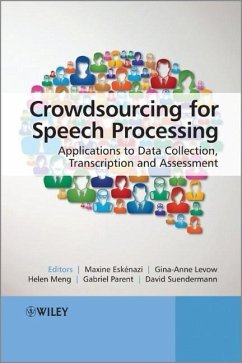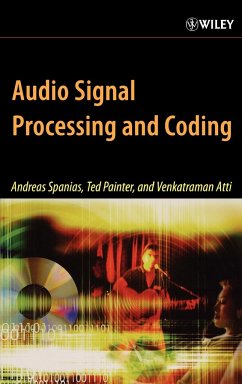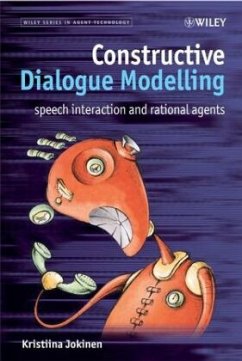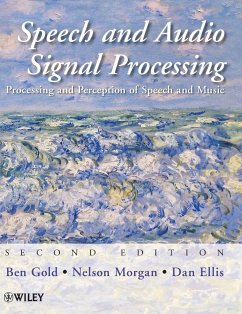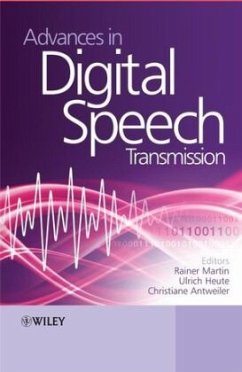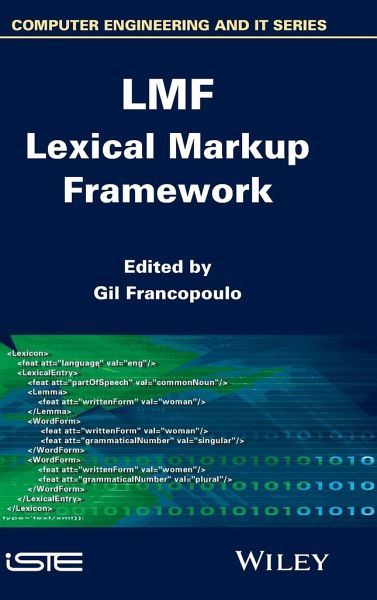
Lmf Lexical Markup Framework
Versandkostenfrei!
Versandfertig in über 4 Wochen
157,99 €
inkl. MwSt.
Weitere Ausgaben:

PAYBACK Punkte
79 °P sammeln!
The community responsible for developing lexicons for NaturalLanguage Processing (NLP) and Machine Readable Dictionaries (MRDs)started their ISO standardization activities in 2003. Theseactivities resulted in the ISO standard - Lexical MarkupFramework (LMF).After selecting and defining a common terminology, the LMF team hadto identify the common notions shared by all lexicons in order tospecify a common skeleton (called the core model) and understandthe various requirements coming from different groups ofusers.The goals of LMF are to provide a common model for the creation anduse of lexical re...
The community responsible for developing lexicons for NaturalLanguage Processing (NLP) and Machine Readable Dictionaries (MRDs)started their ISO standardization activities in 2003. Theseactivities resulted in the ISO standard - Lexical MarkupFramework (LMF).
After selecting and defining a common terminology, the LMF team hadto identify the common notions shared by all lexicons in order tospecify a common skeleton (called the core model) and understandthe various requirements coming from different groups ofusers.
The goals of LMF are to provide a common model for the creation anduse of lexical resources, to manage the exchange of data betweenand among these resources, and to enable the merging of a largenumber of individual electronic resources to form extensive globalelectronic resources.
The various types of individual instantiations of LMF can includemonolingual, bilingual or multilingual lexical resources. The samespecifications can be used for small and large lexicons, bothsimple and complex, as well as for both written and spoken lexicalrepresentations. The descriptions range from morphology, syntax andcomputational semantics to computer-assisted translation. Thelanguages covered are not restricted to European languages, butapply to all natural languages.
The LMF specification is now a success and numerous lexiconmanagers currently use LMF in different languages andcontexts.
This book starts with the historical context of LMF, beforeproviding an overview of the LMF model and the Data CategoryRegistry, which provides a flexible means for applying constantslike /grammatical gender/ in a variety of different settings. Itthen presents concrete applications and experiments on real data,which are important for developers who want to learn about the useof LMF.
Contents
1. LMF - Historical Context and Perspectives, NicolettaCalzolari, Monica Monachini and Claudia Soria.
2. Model Description, Gil Francopoulo and Monte George.
3. LMF and the Data Category Registry: Principles and Application,Menzo Windhouwer and Sue Ellen Wright.
4. Wordnet-LMF: A Standard Representation for MultilingualWordnets, Piek Vossen, Claudia Soria and Monica Monachini.
5. Prolmf: A Multilingual Dictionary of Proper Names and theirRelations, Denis Maurel, Béatrice Bouchou-Markhoff.
6. LMF for Arabic, Aida Khemakhem, Bilel Gargouri, Kais Haddar andAbdelmajid Ben Hamadou.
7. LMF for a Selection of African Languages, Chantal Enguehard andMathieu Mangeot.
8. LMF and its Implementation in Some Asian Languages, TakenobuTokunaga, Sophia Y.M. Lee, Virach Sornlertlamvanich, KiyoakiShirai, Shu-Kai Hsieh and Chu-Ren Huang.
9. DUELME: Dutch Electronic Lexicon of Multiword Expressions, JanOdijk.
10. UBY-LMF - Exploring the Boundaries ofLanguage-Independent Lexicon Models, Judith Eckle-Kohler, IrynaGurevych, Silvana Hartmann, Michael Matuschek and Christian M.Meyer.
11. Conversion of Lexicon-Grammar Tables to LMF: Application toFrench, Éric Laporte, Elsa Tolone and Matthieu Constant.
12. Collaborative Tools: From Wiktionary to LMF, for Synchronic andDiachronic Language Data, Thierry Declerck, Pirsoka Lendvai andKarlheinz Mörth.
13. LMF Experiments on Format Conversions for Resource Merging:Converters and Problems, Marta Villegas, Muntsa Padró; andNú;ria Bel.
14. LMF as a Foundation for Servicized Lexical Resources, YoshihikoHayashi, Monica Monachini, Bora Savas, Claudia Soria and NicolettaCalzolari.
15. Creating a Serialization of LMF: The Experience of the RELISHProject, Menzo Windhouwer, Justin Petro, Irina Nevskaya, SebastianDrude, Helen Aristar-Dry and Jost Gippert.
16. Global Atlas: Proper Nouns, From Wikipedia to LMF, GilFrancopoulo, Frédéric Marcoul, David Causse andGrégory Piparo.
17. LMF in U.S. Government Language Resource Management, MonteGeorge.
About the Authors
After selecting and defining a common terminology, the LMF team hadto identify the common notions shared by all lexicons in order tospecify a common skeleton (called the core model) and understandthe various requirements coming from different groups ofusers.
The goals of LMF are to provide a common model for the creation anduse of lexical resources, to manage the exchange of data betweenand among these resources, and to enable the merging of a largenumber of individual electronic resources to form extensive globalelectronic resources.
The various types of individual instantiations of LMF can includemonolingual, bilingual or multilingual lexical resources. The samespecifications can be used for small and large lexicons, bothsimple and complex, as well as for both written and spoken lexicalrepresentations. The descriptions range from morphology, syntax andcomputational semantics to computer-assisted translation. Thelanguages covered are not restricted to European languages, butapply to all natural languages.
The LMF specification is now a success and numerous lexiconmanagers currently use LMF in different languages andcontexts.
This book starts with the historical context of LMF, beforeproviding an overview of the LMF model and the Data CategoryRegistry, which provides a flexible means for applying constantslike /grammatical gender/ in a variety of different settings. Itthen presents concrete applications and experiments on real data,which are important for developers who want to learn about the useof LMF.
Contents
1. LMF - Historical Context and Perspectives, NicolettaCalzolari, Monica Monachini and Claudia Soria.
2. Model Description, Gil Francopoulo and Monte George.
3. LMF and the Data Category Registry: Principles and Application,Menzo Windhouwer and Sue Ellen Wright.
4. Wordnet-LMF: A Standard Representation for MultilingualWordnets, Piek Vossen, Claudia Soria and Monica Monachini.
5. Prolmf: A Multilingual Dictionary of Proper Names and theirRelations, Denis Maurel, Béatrice Bouchou-Markhoff.
6. LMF for Arabic, Aida Khemakhem, Bilel Gargouri, Kais Haddar andAbdelmajid Ben Hamadou.
7. LMF for a Selection of African Languages, Chantal Enguehard andMathieu Mangeot.
8. LMF and its Implementation in Some Asian Languages, TakenobuTokunaga, Sophia Y.M. Lee, Virach Sornlertlamvanich, KiyoakiShirai, Shu-Kai Hsieh and Chu-Ren Huang.
9. DUELME: Dutch Electronic Lexicon of Multiword Expressions, JanOdijk.
10. UBY-LMF - Exploring the Boundaries ofLanguage-Independent Lexicon Models, Judith Eckle-Kohler, IrynaGurevych, Silvana Hartmann, Michael Matuschek and Christian M.Meyer.
11. Conversion of Lexicon-Grammar Tables to LMF: Application toFrench, Éric Laporte, Elsa Tolone and Matthieu Constant.
12. Collaborative Tools: From Wiktionary to LMF, for Synchronic andDiachronic Language Data, Thierry Declerck, Pirsoka Lendvai andKarlheinz Mörth.
13. LMF Experiments on Format Conversions for Resource Merging:Converters and Problems, Marta Villegas, Muntsa Padró; andNú;ria Bel.
14. LMF as a Foundation for Servicized Lexical Resources, YoshihikoHayashi, Monica Monachini, Bora Savas, Claudia Soria and NicolettaCalzolari.
15. Creating a Serialization of LMF: The Experience of the RELISHProject, Menzo Windhouwer, Justin Petro, Irina Nevskaya, SebastianDrude, Helen Aristar-Dry and Jost Gippert.
16. Global Atlas: Proper Nouns, From Wikipedia to LMF, GilFrancopoulo, Frédéric Marcoul, David Causse andGrégory Piparo.
17. LMF in U.S. Government Language Resource Management, MonteGeorge.
About the Authors






